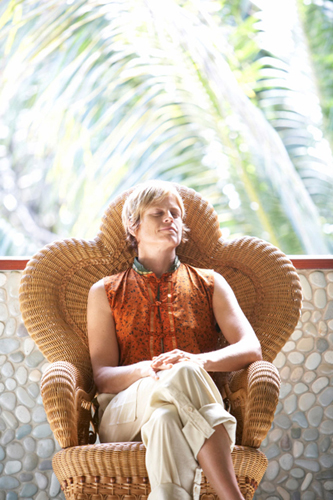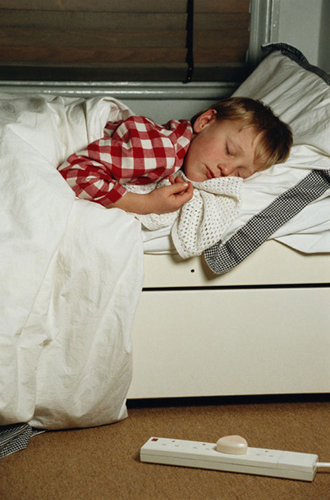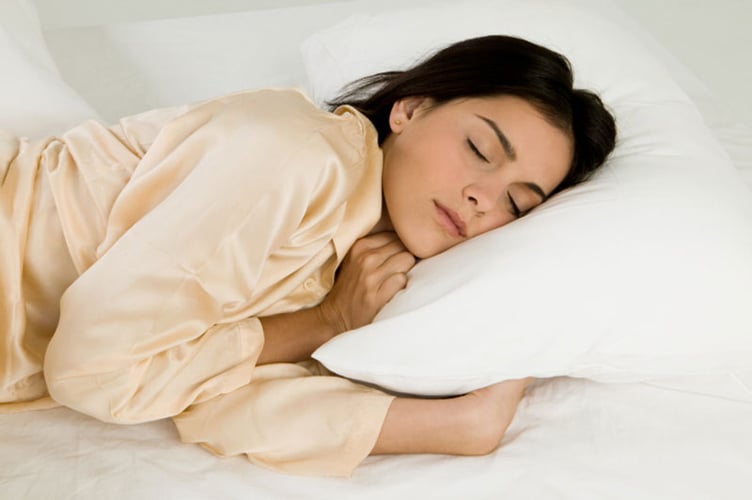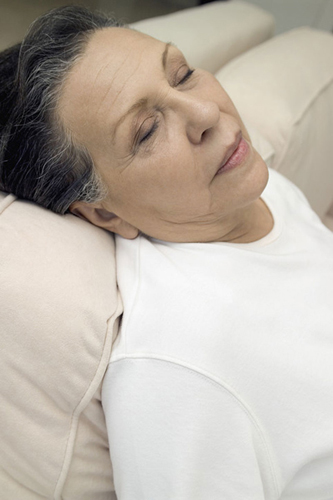| Q: |
What causes sleep disturbances in older age?
| | A: |
A number of factors can result in poor sleep in older age. First,
poor sleep hygiene habits are difficult to change. Second, a medical or
mood disorder that adversely affects sleep becomes more likely and the
medications to treat it may also lead to sleep disturbances. Thirdly,
the incidence of primary sleep disorders like sleep apnea increase and
can contribute to sleep disturbance (this includes a bed partner who can
affect your quality of sleep). And lastly, aging affects our bladders,
circadian rhythms, hormone secretion, and body temperature so it can
lead to less refreshing and more disrupted sleep.
|
| Q: |
Can lifestyle factors influence sleep in aging?
| | A: |
Yes. Evidence from a number of studies suggests that sleep
difficulties are greater in the older person who has little or no
exposure to natural light, has a poor diet, does not exercise, and is
not mentally stimulated. This means that as far as you are able, you
should keep yourself active, involved in life and with others (family,
friends, volunteer activities, or work), keep up an exercise routine
suited to your physical needs, and eat a healthy and balanced diet.
|
| Q: |
The older I get, the earlier I tend to wake up in the morning – is this normal?
| | A: |
As your circadian rhythm changes with age, you tend to feel more
tired toward the early evening, thus bringing your bedtime forward. When
this occurs, you tend to wake up earlier, so the cycle continues. There
is nothing wrong with this, unless your bedtime has advanced to the
degree that you are suffering from advanced sleep phase syndrome and it is impairing your day-to-day functioning.
|
| Q: |
What are the changes that lead to sleep disruption in older age?
| | A: |
As we age, the body’s production of growth hormone (produced
during slow wave sleep), sex hormones, and melatonin begins to decline.
The changes, especially in growth hormone levels, coincide with the
reduction in slow wave sleep. Changes in temperature regulation also
occur. Serum cortisol levels rise with age and the evening dip is not as
pronounced as in younger people. This change in cortisol levels is
associated with the observed reduction in REM sleep with age. Levels of
inflammatory neurochemicals (cytokines) in the bloodstream also tend to
be more elevated in elderly as compared to younger people who sleep
poorly. Some of these cytokines can cause symptoms of daytime sleepiness
and fatigue.
|
| Q: |
What are the most common primary sleep disorders?
| | A: |
The most common sleep disorders in the elderly are insomnia,
sleep apnea, restless legs syndrome, and advanced sleep phase syndrome.
|
| Q: |
Is it normal to be tired during the day in old age?
| | A: |
No. Although stamina, endurance levels, and organ function start
to decline from about 30 years of age, if you are otherwise healthy,
sleep well, take no medication, and have a balanced lifestyle, there is
no reason to be tired.
|
| Q: |
What about all the pills I’m on–could they be affecting my sleep?
| | A: |
Many medications can disrupt sleep. A list of commonly prescribed drugs is provided in The effect of drugs on sleep.
The time at which you take medication can also affect sleep, so talk to
your doctor if you think that a drug is causing sleep disturbances.
Many elderly people take a wide variety of prescribed drugs for various
ailments–if you are unsure why you are on certain medications and what
they should be doing, discuss this with your doctor. Don’t be shy about
discussing your health with the appropriate professional.
|
| Q: |
Is it normal to nap in old age?
| | A: |
This is a difficult question with no precise answer yet. At
present it is thought that the lightening of sleep at night results from
a reduced drive to sleep and the corollary of this is an increased urge
to nap during the day. However, studies in people who age successfully
(without medical disease, psychiatric disorders, or sleep disorders)
show that even well into their 80s they have no increase in daytime
sleepiness requiring naps. So, if you feel excessively sleepy or tired
during the day, don’t let anyone tell you that it is just due to old
age. Daytime sleepiness in old age is usually the result of many
different factors working together to cause sleep difficulties and
disruption.
|
| Q: |
My bladder keeps me up all night –what can I do about it?
| | A: |
As your bladder ages, it is less likely to retain as much urine
over longer periods of time. It is important to discuss your symptoms
with a medical professional and sometimes a specialist (urologist) who
can help diagnose and manage your problem. Men who get up to urinate
during the night and have problems with stream or with dribbling should
have their prostate checked; most men experience these symptoms due to
enlargement of the prostate gland. Tell your doctor if you have a
burning or stinging sensation when urinating and ask about Kegel
exercises and medications for erectile dysfunction.
|
| Q: |
What can I do to minimize sleep disruption?
| | A: |
Reduce the amount of fluid you drink in the evening and just
before going to bed. If you are on a diuretic medication, take it in the
morning and the last dose at lunchtime. If you have a primary bladder
problem, make sure you have comfortable incontinence pads. Sometimes the
need to urinate during the night is associated with a sleep disorder
such as sleep apnea.
|
Myth or truth?
Myth
“Sleep needs decline with age”
Truth
This is a
common misconception. The actual amount of sleep we need changes very
little with aging. What does change is the pattern of our sleep, in that
as we grow old we experience less slow wave sleep (especially men) and
slightly less REM sleep. Healthy older adults tend to sleep well.
Trouble falling asleep at night or excessive drowsiness during the day
is neither normal nor inevitable in old age.

How does sleep change as we age?
The observations that
have been made about sleep at various stages of our lives are summarized
here. As we get older, we have less slow wave sleep (stages 3 and 4)
and a reduction in the amount of REM sleep during the night. The amount
of time spent awake after going to bed also increases–it may take longer
to fall asleep, and wake up more often during the night and earlier in
the morning. The amount of time we spend asleep decreases only slightly.
Table | | Infants | Young adults | Elderly |
|---|
|
Time spent awake after sleep onset
| > 5% | > 5% | 10–20% | |
Sleep efficiency
| < 90% | < 90% | 80–85% | |
Stage 1 amount
| Inactive sleep | 2–8% | 4–10% | |
Stage 2 amount
| Inactive sleep | 45–55% | 35–45% | |
Stages 3 & 4 amount
| Inactive sleep | 13–23% | 5–18% | |
REM sleep amount
| 50% | 20–25% | 15–20% | |
Time of REM/NREM cycle
| 45–60 mins | 90–110 mins | 90–110 mins | |
Total sleep time
| 45–60 mins | 7–8 hours | 7 hours |



|